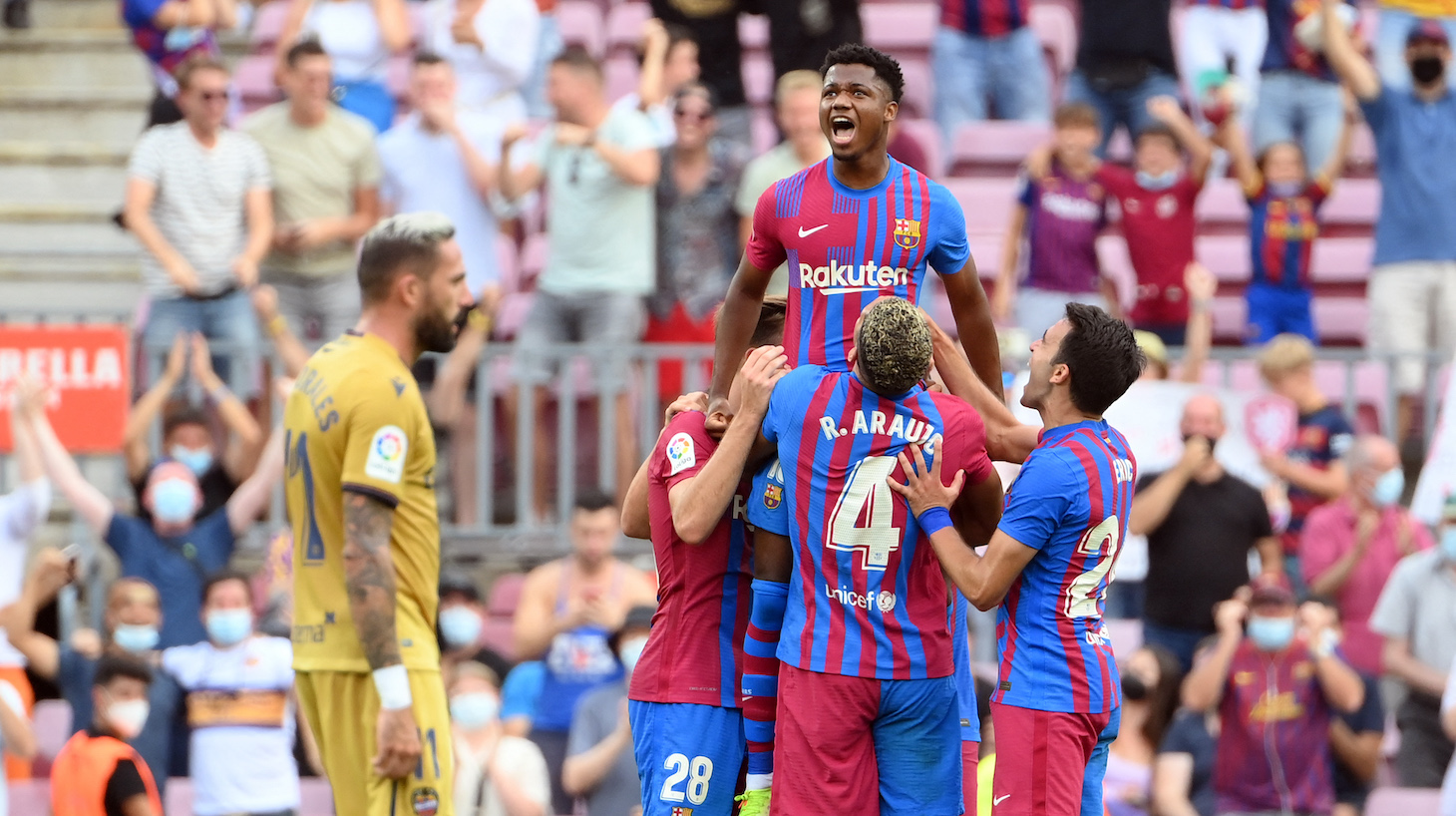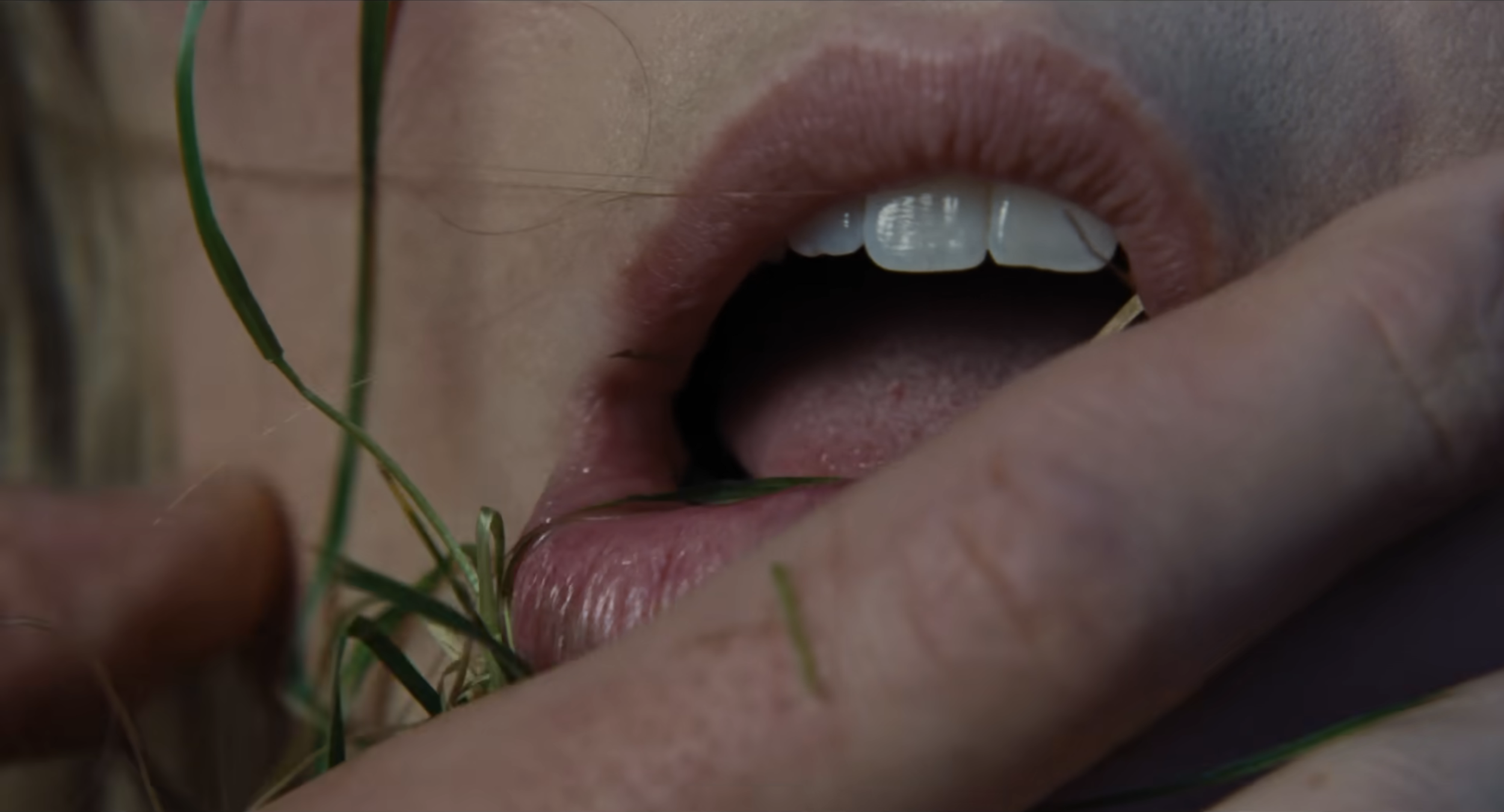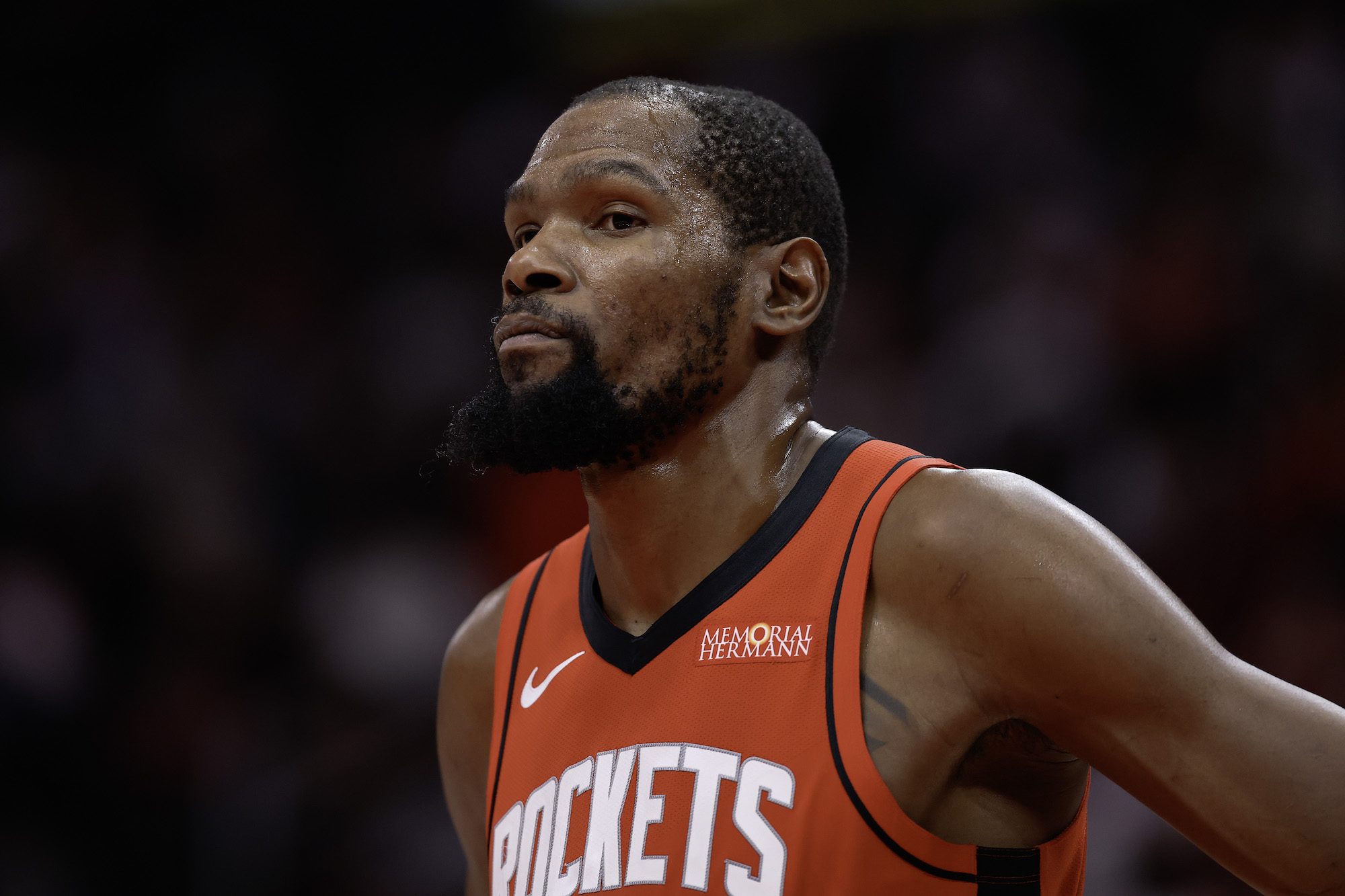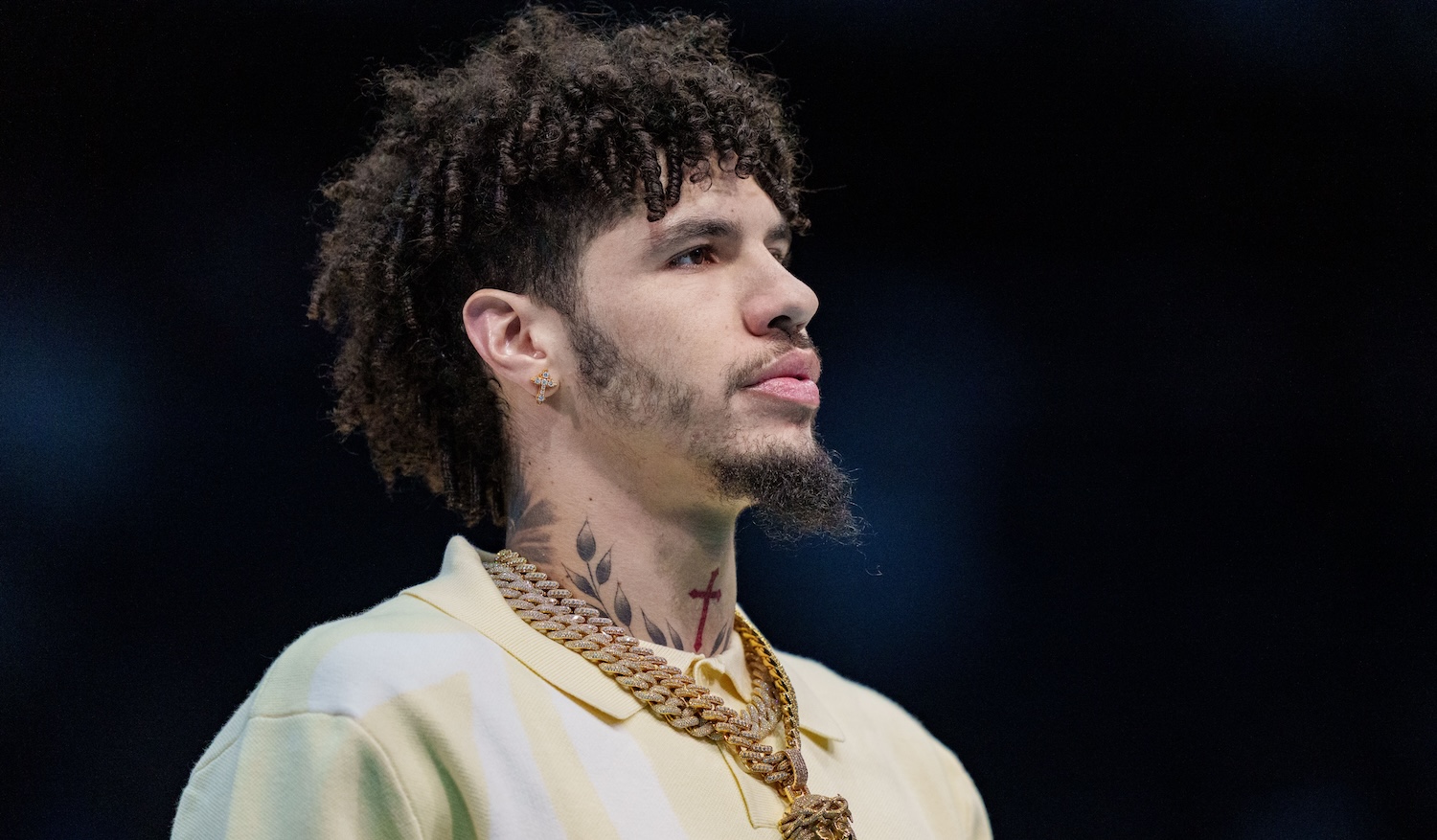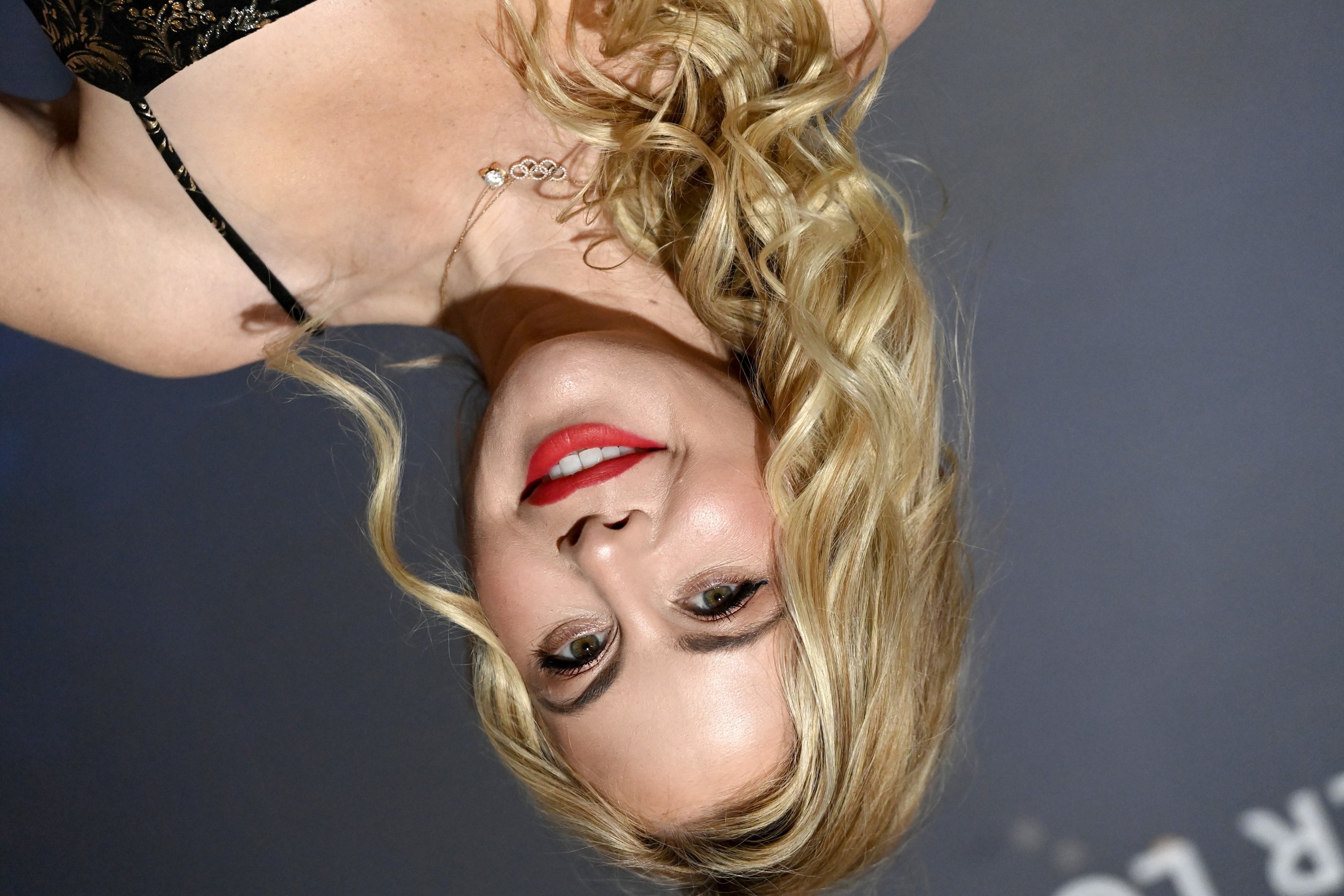It doesn't require a belief in religious predestination or a maximalist interpretation of star charts to notice moments in the present that seem to rhyme with ones in the past, and to wonder if it offers some hint at the future. It's that impulse, I believe, that makes the above photo of Ansu Fati so mesmerizing.
The instantly iconic image captures Fati seconds after scoring the final goal in Barcelona's much-needed 3–0 home victory over Levante. The picture is plenty captivating in its own right. There's Ronald Araújo holding Fati aloft, surrounded by teammates including Eric García, the pair of center backs staring up at Fati in admiration. There's Fati, clearly overcome with emotion, triumph and joy filling up his face and roaring out of his mouth and on the verge of pouring out of his eyes. There are the delighted fans in the background applauding in gratitude, with a line of bros in jorts behind Fati's shoulder evincing that telltale mix of disbelief and pleasure at having seen a goal so unnecessarily wonderful that it catches you by surprise. All of that is immediately detectable just by looking at the still image, even without the additional context that gives the urge to consider it an almost prophetic object.
OMG ANSU FATI SCORES! 😭❤️ pic.twitter.com/pSFDDe8IR5
— ESPN FC (@ESPNFC) September 26, 2021
Fati is so happy because that was his first appearance on the pitch in nearly an entire year. After erupting onto the scene during the 2019–20 season, shattering several records and all expectations as a 16-year-old, Fati entered the 2020–21 campaign with the world at his feet. A couple months into what was already looking like another impossibly precocious season, Fati suffered a serious knee injury. Surgery to address the Spaniard's torn meniscus was supposed to keep him out for about four months, but complications during his recovery would eventually see him miss the entirety of the season as well as the summer's European Championship, at which a healthy Ansu would've almost certainly starred. His return to the pitch on Sunday came almost 11 months after his injury. So much had changed since then.
The Barcelona that Fati had last appeared for was a known quantity. It was led by Lionel Messi, who is maybe the surest sure thing in the sport's history, and so Barça was guaranteed to contend for titles. Fati's role was that of a bridge, tasked with helping Messi and the aging core that remained from the club's greatest era compete today while also preparing to lead the club into a future where Messi and Co. were gone. In the 11 months since the injury, Barcelona had undergone institutional upheaval in the form of Joan Laporta's successful presidential election campaign, and had found itself in an economic crisis that claimed the club's employment of Antoine Griezmann and even Messi himself as casualties. While he was away, the post-Messi future Fati was meant to help ease into had, far sooner than anyone expected, become the present. Oh and also, Fati was essentially made the face of it when he accepted Messi's No. 10.
You can see how much weighed on Fati's return, from several different sources, and how with one swing of his leg he sloughed it all off and got raised into the sky because of it. Ansu himself had to have been excited, determined, and afraid—afraid of the prospect that he would step onto the pitch only to discover he was no longer the phenom he once was, determined to prove that that was not the case, and excited at what might happen if he did pick up where he'd left off. His teammates had to have been worried, too, for Ansu's sake as colleagues and friends who want the best for him, and for their own, as members of a team that had been in total freefall in the three matches since Griezmann left and took with him the team's sense of confidence and security that, even without Messi, they still had a reliable star capable of leading the way. And from the fans there was all of that plus the uncertainty, having lost the man who for the better part of two decades totally conditioned what it meant to be a Barcelona supporter, of what this new Barcelona would be, and if the latest owner of the No. 10 jersey could make the fandom experience anything approaching what it felt like to watch and root for the old 10.
Fati scoring a goal in the dying embers of an already decided match is by no means a definitive answer to any of the hopes or fears he, his family, his teammates, his coaches, or his fans had and will continue to hold about his short- and long-term future. Nevertheless, it is a remarkably positive sign, if only in how it keeps those most optimistic of prognostications alive. The photo of the goal celebration only strengthens those feelings, especially in how it echoes with the past.
You can't help but see in that image of Araújo lifting Fati notes of the famous image of Ronaldinho carrying a 17-year-old Messi after the former assisted the latter's first-ever Barcelona goal back in 2005. Ronaldinho, then the superstar around which the entire Barça solar system revolved, had already marked the teenaged Messi as his heir apparent, and the Brazilian spent the rest of his time in Spain mentoring the young Argentine, helping Messi find his footing until he could assume Ronaldinho's mantle and his No. 10 kit number once Ronaldinho moved on.
The connection even goes further back, to Ronaldinho's own debut in 2003 as Barcelona's new superstar signing and possessor of the No. 10. Back then, fresh off the election of one Joan Laporta to the club presidency, Barcelona was adrift. The club had slipped from its status as one of Europe's true elite since the departure of Johan Cruyff as manager and the slow disintegration of Cruyff's iconic Dream Team. The first few years of the new millennium were a dark time for Barcelona, instantiated most memorably when the club saw its biggest rival steal away its best player when Real Madrid sparked its era-defining Galácticos period with the signing of Luís Figo in 2000.
Laporta had run on a campaign promise to sign English star David Beckham from Manchester United, but when Beckham instead joined Figo at Madrid, Barça were left scrambling. Ultimately the club beat out United to the signing of Ronaldinho from PSG, in doing so hoping that the Brazilian would help lead a young but promising roster back to the top. Ronaldinho made his debut in a home game against Sevilla, and scored a preposterous goal that, for the first time in years, had Barça fans believing that greatness had at last arrived.
Each of those goals from Fati, Messi, and Ronaldinho were impressive strikes, but their most important similarity has more to do with what they stood for. In each goal there was the promise of a brighter tomorrow. Each goal imbued in those who saw it with the faith that its scorer really was a special one, and that under the guidance of this special talent the club could be taken to new heights.
Hope of that kind can reanimate a dejected fanbase, invigorate an uninspired squad, and crystalize a player's self-belief, a prerequisite for becoming one of the very best. Ronaldinho's Barça took almost half a season to really hit its stride, and Messi didn't become Messi until a few years after his debut, so there is no guarantee that greatness and trophies are right around the corner for an Ansu-led Barcelona. Nor is it necessarily the case that Barcelona will or has to be led by Fati himself, not when the club has surfaced potential stars elsewhere like Pedri, this season's new wonderteen, Gavi, and Araújo.
But none of that is the point. The point is that for the first time all season there is a reason to get excited about Barcelona, to believe that the team is progressing toward something, and to trust that that something is something good, even if you have to squint to see it.
